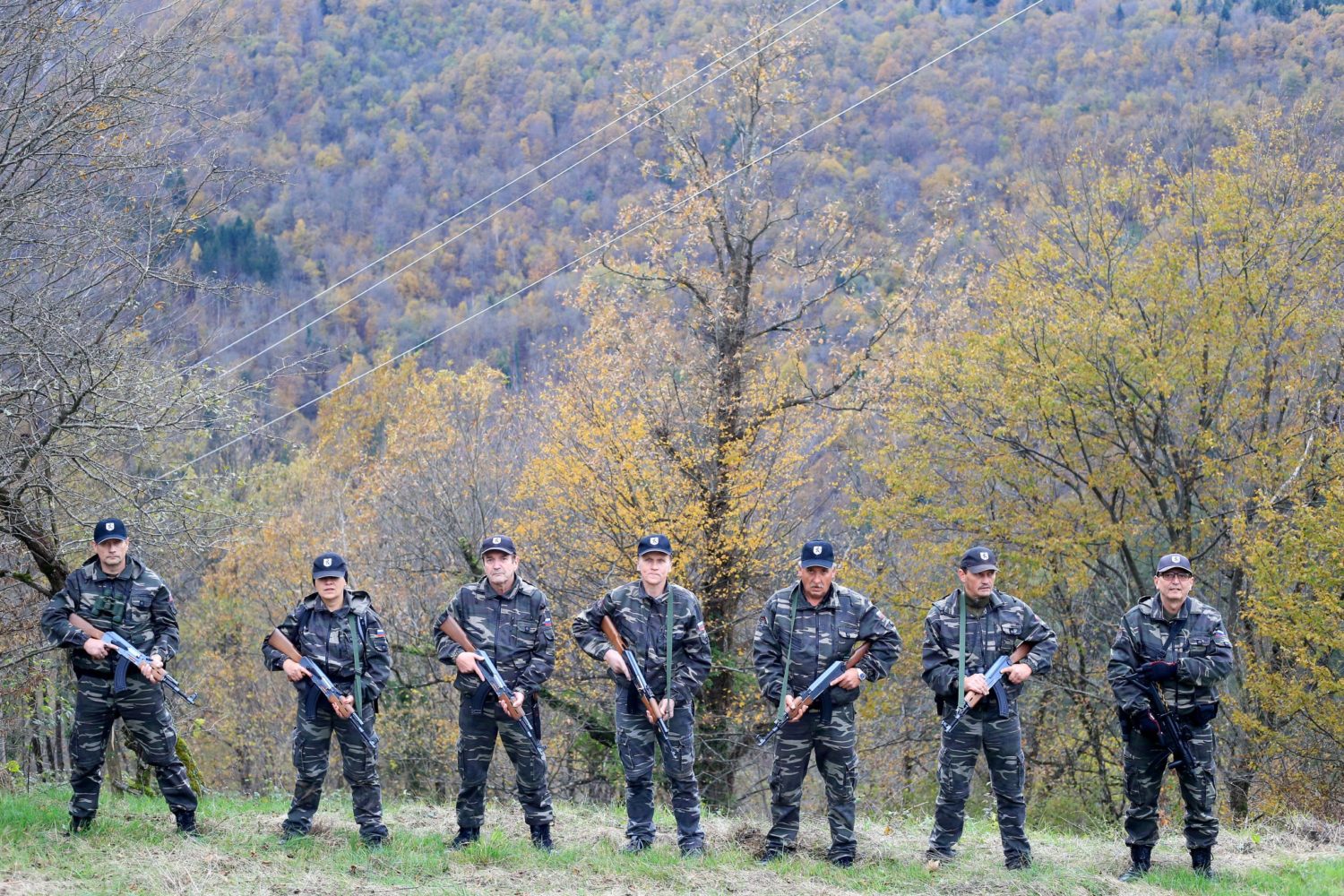
By Antonio Bronic
SISAK, Croatia (Reuters) -An earthquake of magnitude 6.4 struck central Croatia on Tuesday, killing five people and injuring at least 20, and shook several neighboring countries, officials and residents said.
Rescuers pulled people from the rubble of collapsed buildings in the town of Petrinja and army troops were sent to the area to help.
Tremors were also felt in Croatia’s capital Zagreb and as far away as Austria’s capital Vienna. Slovenia shut its only nuclear power plant as a precaution.
It was the second quake to strike the area in two days.
The GFZ German Research Centre for Geosciences said it hit at a depth of 10 km (6 miles), with the epicenter in Petrinja, 50 km south of Zagreb.
The mayor of the nearby town of Glina said four people had been killed there, Croatian state TV reported. In Petrinja, a 12-year-old child was killed, N1 news channel quoted a town official as saying.
Tomislav Fabijanic, head of emergency medical services in Sisak, said many people had been injured in Petrinja and in Sisak.
“There are fractures, there are concussions and some had to be operated on,” he said.
Prime Minister Adrej Plenkovic, who rushed to Petrinja, said: “We have information that one girl was killed.
“The army is here to help. We will have to move some people from Petrinja because it is unsafe to be here,” Plenkovic said.
The head of the hospital in Sisak said later it was treating 20 people, two with severe injuries.
N1 showed footage of rescuers in Petrinja pulling a man and a child from the debris. Both were alive.
Other footage showed a house with its roof caved in. The reporter said she did not know if anyone was inside.
N1 also said a kindergarten was destroyed in the quake but there had been no children in it. The situation was “difficult” in retirement homes in the Petrinja area, it added.
Piles of stone, bricks and tiles littered Petrinja’s streets in the aftermath of the quake, and cars parked in the road were also smashed by falling debris.
A worker who had been fixing a roof in a village outside Petrinja told N1 that the quake threw him to the ground. Nine of the 10 houses in the village were destroyed, he said.
Croatia international soccer player Dejan Lovren made his hotel in the Adriatic town of Novalja available for the 16 most affected families from Petrinja, he said on Instagram.
WRAPPED IN BLANKETS
The quake was also felt in Zagreb, where people rushed onto the streets, some of which were strewn with broken roof tiles and other debris.
Patients and medical staff were evacuated from Zagreb’s Sveti Duh Hospital, many left sitting in chairs in the street wrapped in blankets.
In Austria’s second city Graz, about 200 km (130 miles) north of Petrinja, tall buildings wobbled for about two minutes, according to broadcaster ORF. In Carinthia province, about 300 km to the northwest of Petriinja, the earth trembled for several minutes and people described how their furniture, Christmas trees and lamps wobbled.
In Slovenia, the STA news agency said the country’s sole nuclear power plant, which is 100 km (60 miles) from the epicenter, was shut down as a precaution.
Croatia’s state news agency Hina said in total the quake was felt in 12 countries.
Interior Minister Davor Bozinovic said Croatia was expecting help from the European Union as it had activated its emergency situation mechanism.
On Monday a magnitude 5.2 earthquake hit central Croatia, also near Petrinja. In March, an earthquake of magnitude 5.3 hit Zagreb causing one death and injuring 27 people.
(Reporting by Shubham Kalia in Bengaluru, Igor Ilic in Zagreb and Ivana Sekularac in Belgrade, Writing by Angus MacSwanEditing)



